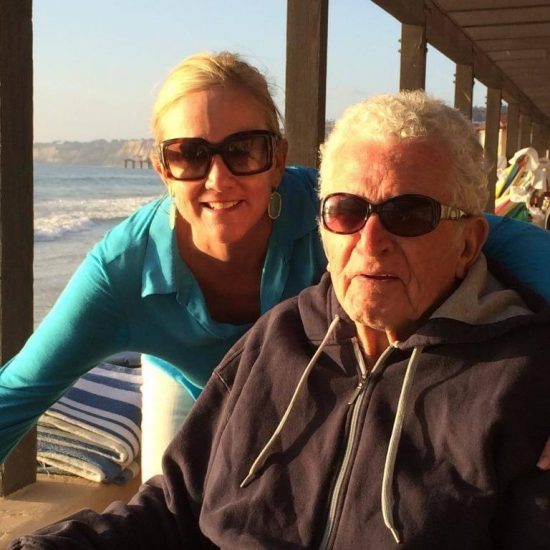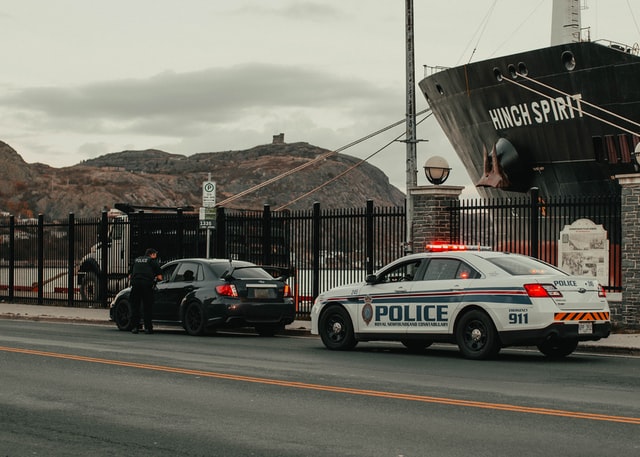There is no full-proof way to get out of a speeding ticket. But, since there are many steps along the way to a final fine and points on your record, there are many ways that the ticket can, in a way, fail. Look at it that way. 85% of people pay a ticket no questions asked. This guide is for the other 15%.
Before You’re Pulled Over
1) Never speed in areas you are unfamiliar with, unless you’re driving cross country and the terrain is flat, without trees.
2) Never drive more than 20 miles an hour over. Besides being cited for reckless endangerment, it is much more difficult to safely slow down.
3) Be observant. This is a good driving skill, anyway. Look especially at bridges, overpasses, and trees which can easily obscure a cop (in areas that are densely this way, you probably don’t want to be more than 10 over).
When You See a Cop
Stop as quickly and safely as possible. Don’t come to a stop on the freeway, but if you overbrake, the worst that will happen is that you will hit the gun under the limit. Brake too slowly and you’re likely to still be over when you’re in range.
When the Lights Start Flashing
Pull over as quickly and safely as possible. Utilize turn signals.
When Waiting for the Officer
1) If you forgot to put on your seat belt, which you should never do, put it on, but not in a totally obvious manner. If the cop asks you if you just put it on, sheepishly answer yes. Don’t lie to him. There are few things they hate more than lying.
2) Also, before he gets there, have your license, registration, and insurance out with both hands on top of the steering wheel. Have your window completely rolled down. Turn off the engine, music, etc. Get off your cellphone.
3) If you are in the military, put your military ID under your driver’s license when you hand it to them. If they are prior military, they might let you off. When I was in the Marines, this worked twice, once to a “I don’t ticket Marines, get outta here.” The third time, the cop asked why I had given the military ID – I played dumb and just said it was extra identification.
At this moment, the cop who addresses this speeder has already started to form an opinion…
You pulled over quickly, safely, using your signals. You have all your documents in order. You say “Sir” or “Officer” when speaking to them.
The Officer Comes to the Vehicle
They ask if you know how fast you were going. Chances are you don’t necessarily know the speed you were going when you got gunned, but if you know, generally, it was around 70, guess 62. That’s a reasonable error if the speed limit was 55. It’s 7 over, but there it is. He then tells you you were going 62 or higher. You might make a face indicating that it was a complete accident. Apologize – and tow the line between obsequiousness and casualness. He’ll go back to decide what to do with you.
Now, at this point, two things can happen (ticket or warning). The officer will run your license, and if you have any recent tickets (in the last two years) on your record, you’re not in a good place. Don’t move around a lot in your seat or call a friend or turn on the music or the vehicle. Sit in your seat. If you do anything, occasionally put your head in your hands for effect. Don’t look at the officer through your rearview, he can see you. Occasionally, you can flick your eyes up there, but in a quick way, not in the way you used to check out that girl in high school, watching her until the very moment she raised her eyes to look at you.
Moment of Truth
He comes back with a ticket or a warning.
If it’s a warning, as I have pulled off in Kansas, Wisconsin, New Hampshire, California, Missouri, and Pennsylvania, thank the officer profusely, even shaking their hand, promise to slow down – and actually do so. You’re on probation for the next hour, at least.
If it’s a ticket, take it; don’t be sullen, be courteous. Apologize anyway and take your medicine.
The date on your ticket is likely anywhere from 3 weeks to 6 weeks from the day you got it.
At this point, 85% of people, despairing, pay their ticket and get the corresponding insurance hikes. That’s what the courts are counting on. But that’s not you. That’s why you’re reading this article.
Work the System
If the name of the game before was politeness and cooperation, now it is delay, delay, delay.
First, depending on your locale, you can get anywhere from a 45-90 day extension on your court date. Don’t write to ask for this extension until 7-14 days of the court date. You can send this certified, but it’s not necessary.
Some courts are automated enough that you can request these extensions online. Check the back of your ticket for details.
At this point, after you’ve delayed, you’ve now bought yourself more time (if you need it, as a stupid speeding college student often did) to either pay for traffic school and bail or the fine. If you haven’t attended traffic school in 18 months, take it. It’s the easy way out. Some states let you do it online (California, for example) and if you’re very busy, an extension can be given, but don’t mess around with this or you’ll end up getting the ticket. Go to traffic school and get it over with, because the Court has to receive your certificate by the due date, so never wait until the last day; you’ll lose.
If you have decided to proceed to your date, this is fine. You’re not going to a trial, you’re showing up to receive a court date.
Invariably, you’ll be summoned to be there by 9am or 1pm, and they won’t get to you until 10am or 2pm, respectively. If your police officer doesn’t show up at this hearing (you do enter a plea), then your ticket is immediately dismissed and you go home happy. If the police officer is there, you’ll get a date for your trial. But, it’s possible the officer won’t make this preliminary hearing. He could be sick that day, it could be a day off, or the the middle of a planned vacation, his wife could be having a baby, or any number of personal things that may take him away. I’ve walked away from two tickets this way.
But what about my lost half day of work? Well, think about it as a short vacation, and think of the necessary insurance hikes that last for three years if you don’t do this or if you lose.
Once you get an assigned court date, find a day that will be convenient for you that is within 30 days of your court date and politely ask for an extension. Remember, delay!
The court may or may not grant your request, but if you are polite enough to the pencil and paper pusher bureaucrat, you’ll probably get your request (I’ve gotten extended 5-6 times).
Prepare
You now have to prepare your case. In the case of speeding, unless you pay a lawyer $500, it’s your word versus his, and you’ll lose. Judges implicitly trust the police (and well they should), and you’re just a law-breaking citizen. Dress well, however; you don’t want to predispose the judge to dispose of you.
Now, we are concerned with speeding in this article, so you either were or were not. Unless you have expert technical knowledge of speedometers or radar guns, you’ve got nada.
The entertaining part is watching everyone else present their cases. I bring a book, but invariably I become engrossed in the proceedings. It’s like Judge Judy, but live.
People will get up, draw diagrams, present photos, read written statements, it’s hilarious. Do not laugh unless the judge and the police laugh. Much of the proceedings are an exercise in controlling your laughter.
Your Turn
So now what? Let’s break down the scenarios.
1) Cop doesn’t show, you win (have had this happen twice).
2) Cop shows, you haven’t been to traffic school, the judge asks, why didn’t you choose traffic school – you say, I didn’t know I could choose that – the judge might (probably) let you…
3) Cop shows, you’ve already been to traffic school. You can request something called secondary level traffic school in some states. This is a 12 hour instead of an 8 hour school, and can only be requested in person. The judge may ask why, and you might answer that you don’t want the points on your record. But it’s helpful to note some inconsistencies about traffic school.
In some states, traffic school merely erases the punitive “points” that go on your record. Your record still shows a ticket and unfortunately, your insurance still goes up.
I found out this unpleasant fact when I applied for new car insurance in Kansas. Geico told me of a ticket that I thought I “erased” due to traffic school but had shown up. In this case it would have been better for me to go to trial or pay the ticket because “points” only matter if you accrue enough to suspend a license, and if you’re on that end of the spectrum, you’re not likely to be reading this anyway, if you even read.
4) Cop shows up and you defend yourself. There’s not really a defense for speeding. The most you can say is that you don’t think you were going over and why, i.e. I was looking at the speedometer at the moment I was gunned, and I don’t think I was going that fast – be convicted (definitely no pun intended here 🙂 ) but not overly passionate. If you say absolutely nothing in your defense, the judge will get upset, presuming that you only showed up hoping that the cop wouldn’t come, and he might raise your fine.
In some states, you can request a “diversion.” This is double the fine of your bail and makes the ticket disappear. Like traffic school you can only do it every 18 months. You may or may not have to be present in court to request it.
Stories
You might be wondering how I know all of this. Alas, experience! Here are some examples.
1) Most recently, in Laguna Beach, a cop showed up on his day off to testify that the “engineering survey” hadn’t been done in a timely fashion. Meaning, every 5 years, the road is examined to make sure the speed limit is appropriate. The cop issued me the ticket (in this case 70 in a 55) in a period after the 5 year expiration but before a new inspection had been done. Since Laguna wasn’t timely in its inspection, I got off completely.
2) In New Mexico I got a 90 in a 75 and wrote to the judge personally to ask for a hearing by proxy, as traveling to NM for a trial was a hardship. The judge, impressed by my politeness, told me he would dismiss the case if the cop no-showed. He didn’t show and I walked (from 2 states away).
3) In New Hampshire in 1999 a punky California driver (me) received 2 speeding tickets in a month, somehow confusing the speeding norms on the West Coast with the strictness of the same on the East. He pled poverty, and got a massive amount of community service hours instead. They worked out to $5/hour, but the point was, he didn’t have to dip into his very limited funds to pay the two tickets he’d stupidly obtained.
4) In Philadelphia I received an $80 parking ticket because the nose of my vehicle protruded into a driveway. One notarized letter ($10), a stamp, and ten minutes of my time, got it dismissed and saved me $70.
5) In Los Angeles I received 2 parking meter tickets. I appealed both, and one was dismissed because the traffic cop had written the ticket so quickly that he got my VIN # wrong. The other one, I had to pay, alas.
Final Reminders
I hope you’ve gotten to the real lessons at the end of this story.
Firstly, don’t speed. What’s the rush anyway? Just leave on time, enjoy music or an audiobook, and be safe!
If you do get caught, be polite.
If you enter the judicial process, delay.
Stay safe!
Photo by Jonathan Cooper on Unsplash


